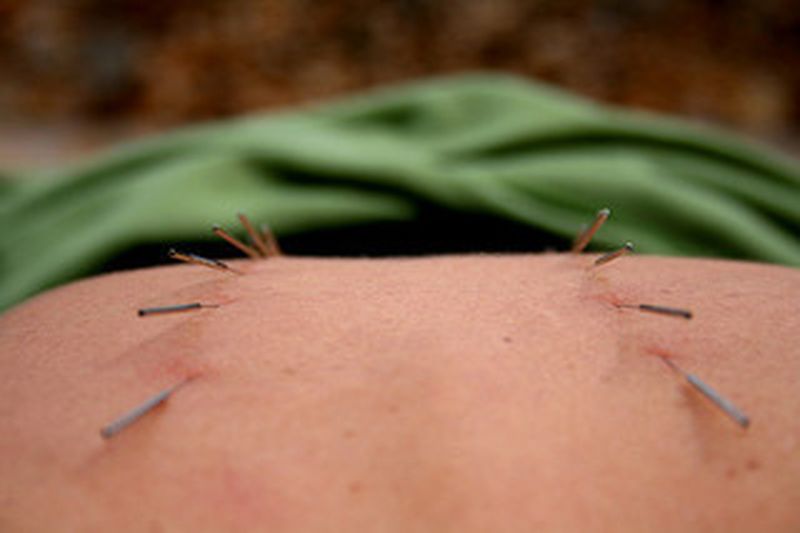Acupuncture and gastroesophageal reflux
Gastroesophageal reflux afflicts 20% of the population with symptoms such as retrosternal burning and acid regurgitation, often nocturnal, which can severely alter the quality of life. In addition, reflux sometimes presents with more subtle symptoms, such as palpitations, persistent laryngitis and hoarseness, dry cough or asthma. Standard pharmacological therapy with pump inhibitors fails to achieve complete symptom control in many patients, and in addition it often has to be continued for years or the symptoms recur.
Acupuncture has proved to be an effective therapy for reflux both in association with drugs when they cannot completely control the problem, and to be able to reduce or suspend them for long periods, obtaining a lasting remission of symptoms. Acupuncture acts both locally, on gastric motility and secretion, and globally, rebalancing stressful situations that often underlie the persistence or aggravation of symptoms.

It has been estimated that at least one in five people in Western countries suffer from symptoms of gastroesophageal reflux at least once a week.
The classic symptoms are retrosternal burning and the regurgitation of acidic material in the throat, which occur most often at night or after meals. These symptoms alone can reach such an intensity that they become truly disabling, causing nocturnal disturbances that severely alter the quality of sleep, as well as limitations in daily activities.
There is also a series of so-called “atypical” disorders that can arise as an accompaniment or, more subtly, occur on their own: chronic laryngitis and hoarseness, irritating cough (in the absence of other ascertained causes), asthma, palpitations, belching, pharyngitis and pain persistent and unexplained throat, dental erosions . In this case it is essential to think of reflux as a possible cause of ailments that would otherwise remain unexplained.
Gastritis Diagnosis
The diagnosis of reflux is primarily clinical, i.e. it is based on the presence of the symptoms we have seen. Gastroscopy is necessary only in some cases (older age, weight loss, dysphagia, epigastric pain, smoking, family history of ulcers or tumors of the digestive tract). Often, however, gastroscopy is normal or shows only a hiatal hernia , that is a (usually modest) ascent of the stomach above the diaphragm.
Since at least 60% of patients do not have esophagitis or erosions on gastroscopy, this type of reflux without mucosal changes has been classified as a subgroup of the disease in its own right (NERD: non-erosive reflux disease). Other tests that can demonstrate reflux are 24-hour pH and manometry which show acid reflux and lower esophageal tone reductions during 24 hours.
Read also How to prevent reflux esophagitis >>
Gastritis therapy
The therapy is primarily based on lifestyle and diet changes such as quitting smoking, reducing the consumption of caffeine, alcohol, acidic foods and avoiding excessively high-fat meals. Maneuvers such as lifting the headboard with elevations under the feet can also be useful, in order to reduce reflux at night.
Standard therapy normally uses so-called pump inhibitors , drugs that work by suppressing stomach acid secretion. However , 20% to 30% of people with reflux do not respond to these drugs or respond only partially. The causes can be the presence of alkaline reflux or an altered sensitivity to acid. The therapeutic alternative for these patients is surgery.
Acupuncture for gastritis
Acupuncture is used successfully in reflux disease. This medical technique acts at various levels, both with a targeted action on the continence of the cardia, on the acid secretion of the stomach and on the gastric and esophageal motility , and with a general rebalancing action that regulates states of stress and systemic inflammation that are often underlying the persistence or resistance of symptoms.
Clinical studies have shown that even in patients resistant to standard therapy with pump inhibitor drugs , acupuncture is effective, with a resolution of symptoms greater than that obtained by doubling the drug dose .
In many cases, acupuncture allows you to reduce or even stop medications for long periods.
The acupuncture cycle is always preceded by an interview and a view that identify the specific situation of the person and the type of imbalance present according to the perspective of Traditional Chinese Medicine. Therapy is therefore always individualized. The sessions can be weekly or biweekly depending on the intensity of the disturbances and the cycle can include an average of 8-10 sessions.
Often, being a chronic condition, it is then useful to do a maintenance with a booster session every 30-40 days for a few more months, or short booster cycles in periods of seasonal worsening (spring and autumn).




























+ There are no comments
Add yours